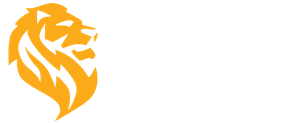Key Questions on MSO Compliance and the Sham Entity Doctrine
Understanding the IRS’s Approach to MSO Compliance
A Management Services Organization (MSO) can be a valuable tool for businesses when structured correctly. However, the IRS has scrutinized MSOs that exist solely for tax avoidance. Below, we explore the key factors that distinguish a legitimate MSO from a sham entity, IRS rulings that shaped compliance expectations, and best practices for maintaining legitimacy.
1. What Are the Key Factors That Distinguish a Legitimate MSO from a Sham Entity?
A legitimate MSO operates as a separate business entity that provides real, measurable management services to an operating company. To avoid IRS classification as a sham, an MSO must:
- Provide actual management services, such as HR, payroll, billing, compliance, IT, or strategic oversight.
- Demonstrate economic substance, meaning it has an independent business purpose beyond tax reduction.
- Follow arm’s-length principles, ensuring management fees are reasonable and benchmarked against third-party providers.
- Maintain separate financials, including dedicated accounts, employees, and contractual agreements.
- Document operational activities, including contracts, invoices, and meeting minutes.
- Charge reasonable fees, supported by a Reasonable Compensation Analysis or third-party market benchmarking.
Failure to meet these criteria can lead to IRS audits, reclassification of income, and severe tax penalties.
2. How Have Past IRS Rulings and Court Cases Impacted MSO Compliance?
Case Study: Tony L. Robucci, et al. v. Commissioner, TC Memo 2011-19
In this case, the taxpayer attempted to use an MSO structure to reduce self-employment taxes but failed to demonstrate a legitimate business purpose. The MSO:
- Had no employees, office space, or assets.
- Provided no actual services to the operating business.
- Was used solely to shift income and create artificial deductions.
- Charged arbitrary fees without economic justification.
The Tax Court ruled that the MSO lacked economic substance and disregarded it for tax purposes, leading to back taxes, penalties, and interest for the taxpayer. This ruling underscores the importance of structuring an MSO with real operations and documented economic benefits.
Other key rulings include:
- Lender Management, LLC v. Commissioner (2017) – Reinforced the necessity of active management and proper compensation structures. Read More
- Coca-Cola Co. v. Commissioner (2020) – Emphasized arm’s-length pricing in intercompany transactions. Read More
- IRS Chief Counsel Advice (CCA) 201436049 – Addressed the tax treatment of management fees and economic substance. Read More
3. What Are the Critical Elements for an MSO to Establish Legitimacy?
Guardian Tax Consultants’ MSO Compliance Framework
Guardian Tax Consultants (GTC) ensures MSOs are structured for business efficiency and compliance rather than tax avoidance. Key compliance strategies include:
1. Business Purpose & Economic Substance
- Each MSO structure starts with a comprehensive enterprise review to identify operational and strategic needs.
- The MSO must provide measurable economic benefits beyond tax deferral.
- A Tax & Risk Assessment ensures the structure is viable before implementation.
2. Establishing an Arm’s-Length Relationship
- The MSO must have independent financial operations, including separate bank accounts and bookkeeping.
- Management fees must be based on reasonable compensation studies and comparable third-party benchmarks.
- Contracts must be legally structured to define the MSO’s responsibilities and pricing.
3. Audit Readiness & Documentation
- GTC ensures that all MSO transactions are well-documented to withstand IRS audits.
- Clients receive structured compliance tracking, ensuring operational transparency.
- A 22-page Handler Memorandum outlines IRS-compliant MSO structuring principles.
4. Tax Efficiency Without Abuse
- The MSO is structured as a C Corporation, offering tax planning benefits while maintaining economic substance.
- Earnings and Profits (E&P) are retained for legitimate business purposes, including:
- Succession planning
- Mergers & Acquisitions
- Debt repayment
- Business expansion and risk management
5. Third-Party Validation
- Independent tax attorneys review prior tax returns, P&Ls, and financials.
- Every MSO undergoes Reasonable Compensation and Management Fee Analyses to ensure compliance.
Conclusion: A Compliance-First Approach
The IRS’s past rulings serve as clear warnings against using MSOs solely as tax shelters. Businesses must structure MSOs with economic substance, proper documentation, and independent business functions. GTC ensures its clients remain audit-ready with a compliance-first approach that prioritizes long-term business success.
For more information or to request the Handler Memorandum on MSO compliance, contact Guardian Tax Consultants today.
Citations & References
- Tony L. Robucci, et al. v. Commissioner, TC Memo 2011-19 Read Here
- IRS Proposed Regulation § 1.269A-1 Read Here
- Handler, T.J. “Management Services Organization Educational Memorandum,” 2024
- IRC §162 – Deduction for Ordinary and Necessary Business Expenses Read Here
- Lender Management, LLC v. Commissioner, T.C. Memo 2017-246 Read Here
- IRC §482 – Allocation of Income and Deductions Among Taxpayers Read Here
- IRS Chief Counsel Advice (CCA) 201436049 Read Here
- Coca-Cola Co. v. Commissioner, T.C. Memo 2020-142 Read Here
- Treasury Regulation § 1.6662-3 – Economic Substance Doctrine Read Here
- Brennan & Co. v. Commissioner, 2015 Tax Ct. Memo LEXIS 32 Read Here




